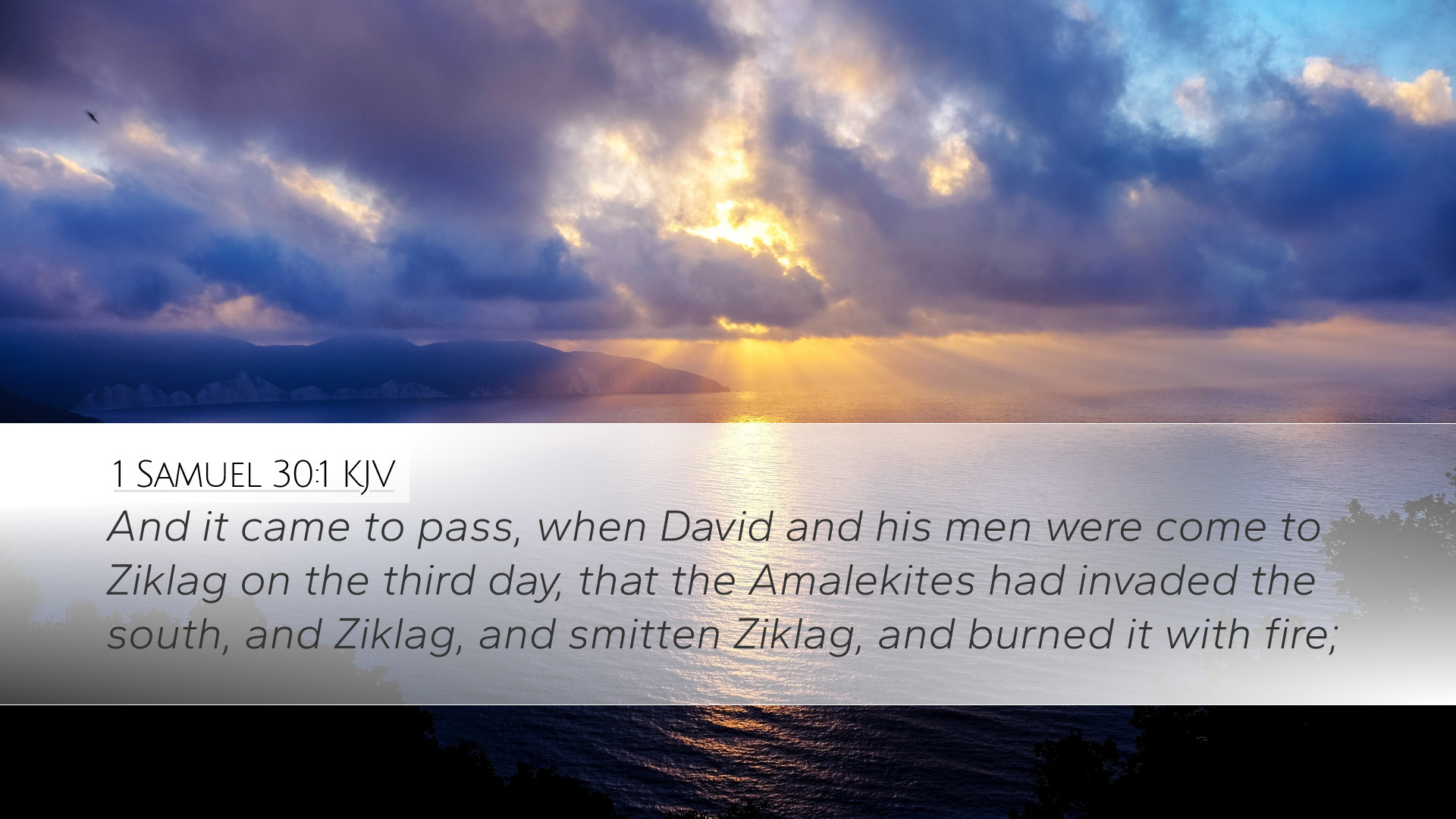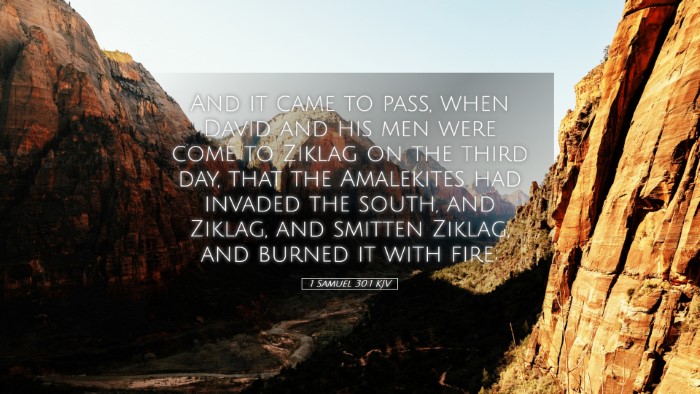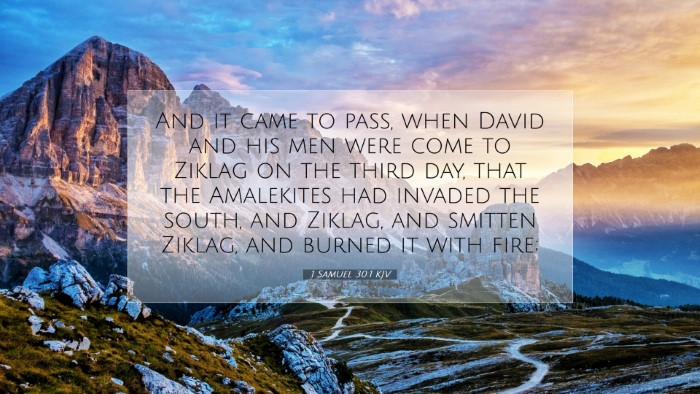Commentary on 1 Samuel 30:1
Verse: "And it came to pass, when David and his men were come to Ziklag on the third day, that the Amalekites had invaded the south, and Ziklag, and smitten Ziklag, and burned it with fire."
Introduction
This verse marks a significant turning point in the narrative of David's life as he faces tremendous loss and challenge. The weight of David’s situation must not be underestimated, as it represented not only a personal tragedy but a moment of crisis for his leadership and future as the appointed king of Israel.
Historical Context
David had been living in Ziklag, a city given to him by Achish, king of the Philistines, during his time of exile. As he returned from a military engagement, he found his city razed and his loved ones taken captive. The context is crucial: David is not only dealing with destruction and loss but also the consequences of his alliances with the Philistines, as noted by Matthew Henry who emphasizes the folly of associating with enemies of God's people.
The Significance of Ziklag’s Desolation
The tragedy of Ziklag serves as a reminder of the consequences of living away from the promise of God. Albert Barnes notes that Ziklag's destruction by the Amalekites symbolizes the trials that often come upon those who stray into ungodly alliances. This resonates with the larger biblical theme of the consequences of sin and rebellion against God’s commands.
David’s Reflection and Reactions
David’s heart was undoubtedly heavy upon discovering the fate of his city and family. The reaction of David and his men shows a dual response of grief and anger. Adam Clarke indicates that David faced a double-edged sword of sorrow and self-blame. As leader, his men looked to him for direction amidst their distress, highlighting the tremendous burden of leadership during times of crisis.
Spiritual Implications
- Faith Amidst Trials: David's situation teaches the importance of maintaining faith even in despair. Matthew Henry encourages believers to trust God’s plan, particularly when circumstances seem dire.
- Leadership in Crisis: David’s experiences offer profound insights into leadership integrity. Barnes illustrates that true leaders remain steadfast in faith and provide hope even when all seems lost.
- Understanding Divine Retribution: The Amalekite raid may be seen as a consequence of unfaithfulness towards God. Clarke’s commentary discusses how periods of apparent abandonment can lead to divine discipline meant for correction and restoration.
Theological Reflections
The attack on Ziklag underscores a deeper theological narrative concerning God’s sovereignty and human struggle. David's encounter with calamity illustrates the doctrine of providence — that God works through trials for greater purposes, refining character and fortifying faith.
Practical Lessons for Today’s Believers
This account of David and his men offers practical lessons for modern believers:
- Dealing with Loss: It is natural to grieve when facing personal disasters. The example of David teaches us the importance of acknowledging our pain and turning it into a catalyst for seeking God’s guidance.
- Community Support: David’s men wept together, showcasing the need for community and mutual support during difficult times. This is a poignant reminder of the church's role in each other’s lives.
- Seeking Divine Guidance: David’s ultimate recourse will be to inquire of the Lord, an act that highlights the necessity for believers to seek direction from God amidst trials.
Concluding Thoughts
1 Samuel 30:1 serves as a critical junction in David's journey, encapsulating the essence of despair within a framework of hope and recovery. The ruins of Ziklag speak not only of loss but also of the victory that follows when one seeks the Lord earnestly. Readers are reminded that like David, we too face trials but can emerge stronger through reliance on God's strength and wisdom.


